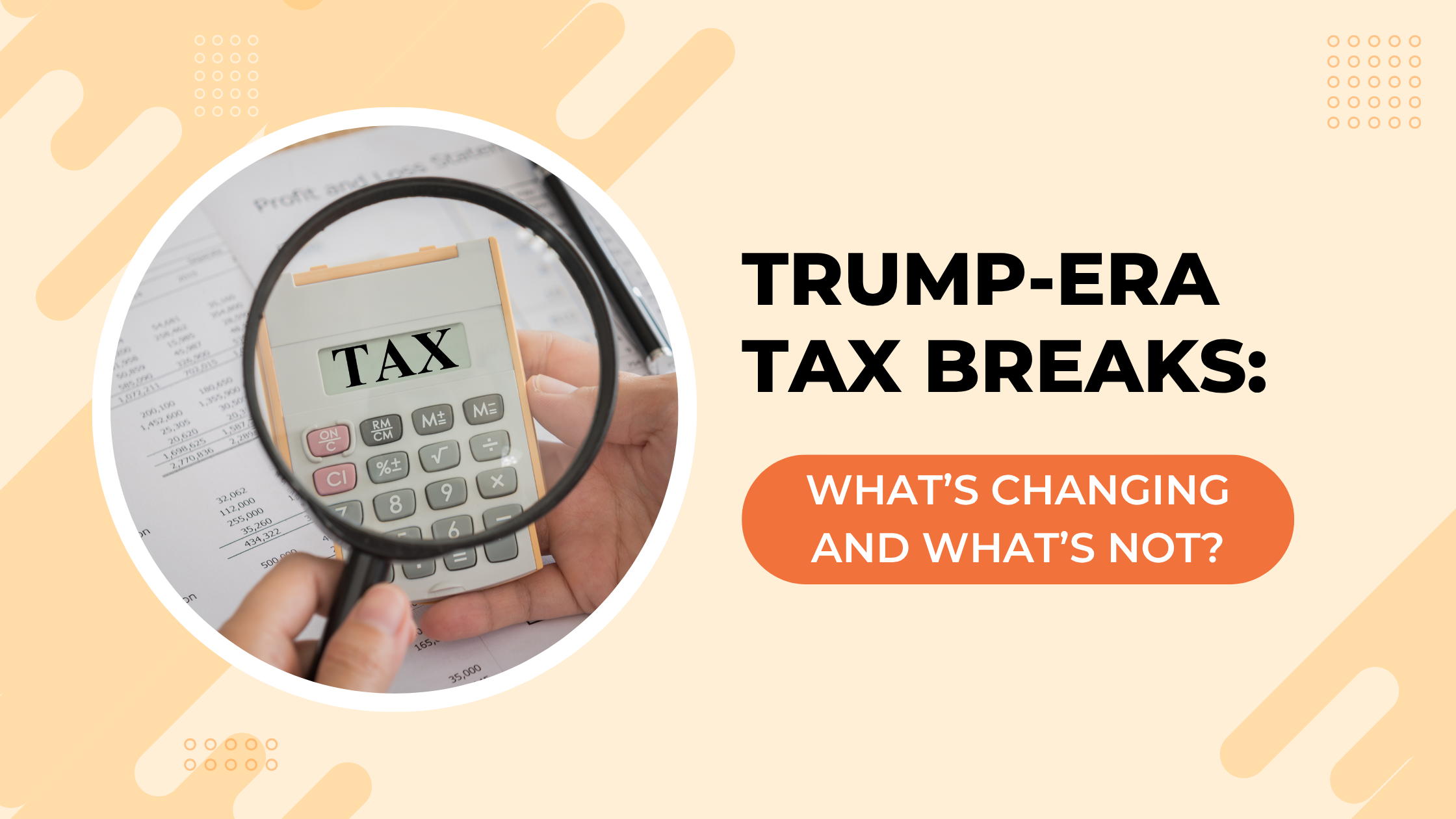How Should Tech Professionals Invest To Maximize Their Money?
True Root Financial is a fee only financial advisor and financial planner based in San Francisco, CA. We serve clients across the globe.
You’ve got the tech job. The RSUs. The 401(k). Maybe even a growing savings account. But when it comes to investing that money wisely? That’s where things can get tricky, even intimidating.
“I’m not good with the stock market.”
“I don’t want to lose what I’ve saved.”
“I’ll wait until the market calms down.”
Sound familiar?
If you are a tech professional interested in learning how we can help you claim your financial independence by investing wisely, minimizing taxes, and maximizing your equity compensation, please book a no-obligation call here.
If you’ve ever felt overwhelmed by investing, this video is for you. We’ll show you how to take a calm, clear, and strategic approach so that your money works with you, not against you.
Key Takeaways:
- Define your financial goals and timeline before choosing investments
- Smart investing isn’t gambling, it’s risk-aligned, diversified, and goal-based
- Start now and invest consistently; don’t wait for perfect market timing
- Partner with a financial advisor who understands tech compensation and long-term planning.
You Earn Well, But Is Your Money Working For You?
If you’re like many tech professionals in San Francisco or the greater Bay Area, you’re earning well but feeling unsure about how to grow what you’ve earned. That’s completely normal. The truth is, investing isn’t about being a market genius. It’s not about chasing the next big IPO or predicting recessions. It’s about clarity, discipline, and strategy.
Let’s walk through how you can build durable wealth by managing your money the smart way.
1. Get Clear On Where You Are And Where You’re Going
Before jumping into investment strategies, take a pause. Ask yourself:
- What are my financial goals?
- When will I need this money?
- What’s the purpose of my investments?
Some of your money may be for long-term goals like retirement, while other portions may be for shorter-term plans: buying a second home in Napa, funding your child’s college tuition, or taking a year off to start your own business. Every goal has its own timeline, and that timeline should shape how your money is invested.
Pro tip: Define your investment objectives first. Your risk tolerance and portfolio strategy should align with when and why you’ll need the money.
2. Understand That Smart Investing Is Not Gambling
Let’s be real: most of us didn’t grow up learning how to invest. And many tech workers still associate investing with risk and uncertainty, like betting on stocks or trying to “beat the market.”
But investing isn’t gambling. Done correctly, it’s a methodical way to grow your money based on your specific needs and risk level.
Smart investing isn’t about luck or timing. It’s about building a balanced garden of investments that grow over time, through storms and sunshine. You plant different things for different seasons. Some will grow fast; others take time. Some need more care; others thrive with less. You wouldn’t water your succulents like you water your basil, right?
Smart investing works the same way. You create a diverse mix of stocks, bonds, real estate, etc., each with a role, risk level, and time horizon.
3. Build An Efficient, Risk-Aligned Portfolio
So what exactly is smart investing? It’s called efficient portfolio management. This means:
- Choosing the right mix of investments (diversification)
- Matching that mix to your goals and timeframes
- Making sure you’re getting the most return for the least amount of risk you can reasonably take
For example, if your goal is to buy a home in 3–5 years, you might not want that money in volatile tech stocks. Instead, you’d prioritize stability. On the other hand, your retirement fund, something you won’t touch for 20+ years, can handle more risk and growth.
This strategic matching makes your investments more durable. You’re not reacting emotionally when markets dip. You’re following a plan built around your life, not the news cycle.
Bonus tip: Align your portfolio with both your goals and your risk capacity to ensure you’re maximizing returns without unnecessary stress.
4. Invest Consistently, Not Perfectly
Here’s a common question I hear: “When is the best time to invest?” The answer? Now.
Trying to time the market is a losing game, even for the pros. If you’re waiting for a “perfect” time to invest, you may end up sitting on the sidelines for years, missing out on growth.
Imagine waiting for the perfect weather before planting a tree. You could wait forever. But if you plant it today and water it regularly, even if a few storms roll in, you’ll get shade much sooner.
Investing is the same. The people who build wealth aren’t the ones with perfect timing. They’re the ones who start early, stay consistent, and stay invested.
That means contributing to your 401(k), maxing out your Roth IRA or Backdoor Roth, setting up automatic investing to a brokerage account, and rebalancing your portfolio when needed.
Don’t wait for perfect conditions. Start investing now and keep going through good markets and bad.
5. Tailor Your Investments To Your Tech Benefits
As a tech professional, your financial life is a bit more complex than average. You likely have:
- RSUs or ESPPs from your employer
- High cash flow but inconsistent bonus/vesting schedules
- Stock-heavy compensation
- Aggressive growth potential and risks to match
That means your investing strategy needs to factor in how concentrated your wealth is in company stock. For instance, holding too many RSUs without diversifying can leave you exposed if your company’s stock takes a hit.
You might also need to consider the tax implications of selling RSUs, contributing to a Mega Backdoor Roth 401(k), or when to exercise ISOs. The point is: your investment approach should work with your compensation structure, not against it.
Make sure your investing strategy accounts for RSUs, ESPPs, and tax planning specific to tech compensation.
6. Work With A Financial Advisor Who Gets It
You’re busy. Your job is demanding. And chances are, you don’t want to spend your weekends analyzing ETFs and rebalancing asset classes. That’s where a financial advisor comes in. But not just any advisor, a good one will:
- Understand tech-specific compensation and tax strategy
- Help you align your investments with your life goals
- Create a system so your portfolio runs smoothly in the background
- Coach you through market downturns (so you don’t panic-sell)
- More than anything, a good advisor gives you clarity and confidence. You’ll stop wondering if you’re doing the right thing, and instead know you’re on track.
Final Thoughts: Invest Like You Mean It
Building wealth as a tech professional doesn’t require a finance degree. It requires a plan. Once you know where you are and where you’re trying to go, investing becomes the tool that gets you there, not something to fear or avoid.
The market will rise and fall. But your financial future doesn’t have to follow its every move. With a strategy built around your goals, your timeline, and your values, you can grow your money in a way that feels empowering, not overwhelming.
Your Next Steps
Ready to make your money work as hard as you do?
Partnering with a financial advisor who understands tech professionals can be a game-changer for building and protecting long-term wealth. Let’s talk. We specialize in helping Bay Area tech professionals invest with confidence, clarity, and purpose. Book a call below:









Leave a Reply
Want to join the discussion?Feel free to contribute!